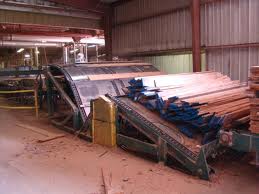
 |
|
The Hardwood Federation Newsletter
July 2025
From the Executive Director: It has been an action packed first seven months of the 119th Congress. Lobbyists are fatigued as are Capitol Hill staff and all are relieved that Members of Congress have left town for the month of August so we can all catch our breath, assess the activity of the last few months, and plan for the last quarter of 2025. All eyes now are on the fall agenda and beyond into 2026 where some promising legislative vehicles are on deck. As for post-August recess, Members of Congress return on September 2 facing an immediate deadline to fund the government past September 30. That is when the current Continuing Resolution (CR) expires. While both chambers have moved on some appropriations measures, the likelihood of acting on all 12 appropriations bills before the end of September is near zero. That means another CR will be required. At this writing, odds of a government shutdown appear high related to partisan divide over a recent Democrat-opposed “rescissions” package that was enacted that claws back about $9 billion in already appropriated funds. This action followed closely on the heels of the budget reconciliation bill that was also passed despite unified Democrat opposition. A government funding CR will require 60 votes in the U.S. Senate, meaning a handful of Senate Democrats will have to vote for it. Given that Minority Leader Schumer is still taking heat from his caucus for agreeing to the last CR in March and averting a shutdown, the table appears set for a government funding lapse of some duration. Assuming that a CR comes together at some point, the measure may include an extension of certain Farm Bill programs. While the budget reconciliation bill that was signed into law July 4 addresses major parts of the Farm Bill in areas such as commodity support, crop insurance, conservation and food assistance. Importantly, the bill also fully funded USDA trade promotion programs which support the American Hardwood Export Council. However, the bill did not include some key programs we care about. House Agriculture Committee Chairman Glenn “GT” Thompson (R-PA) has signaled his desire to move a “skinny” Farm Bill out of his committee that would reauthorize these remaining programs in September. The skinny bill would include the Community Wood and Wood Innovation Grant programs, the Forest Inventory and Analysis program, biomass carbon neutrality language and workforce provisions to help the forestry and forest products sectors. In the fall, advocacy will heat up around the next highway bill, which is up for reauthorization in 2026. There are several proposals pending and about to be introduced that seek to reform our country’s outdated gross vehicle weight limitations for trucks. One is the bipartisan, bicameral Safe Routes Act (H.R. 2166/S. 1063) that would allow logging trucks travelling at the maximum gross vehicle weight on state roads to access the federal interstate highway system for limited distances when it makes sense to do so. The other is the FRESH Act (Freight Restriction Elimination for Safer Hauling) that will be introduced by Rep. Mike Collins (R-GA) in September. That bill is identical to Safe Routes but would apply weight reform to a broader list of “perishable commodities” of which logs and biomass are included. Folding either of these two proposals into the next highway bill would be a huge win for our sector. Based on conversations we have had with Members and staff on the transportation committees, there seems to be an appetite for addressing truck weight policy in the reauthorization legislation. A third proposal allowing states to opt-in to a truck weight pilot program where 6-axle rigs weighing 91,000 pounds would be allowed to operate on the interstate is also in the mix. This proposal is supported by large manufacturers whose trucks weigh out before they cube out, resulting in half-full rigs leaving warehouses. The Class 1 railroads will continue to oppose all of these bills, but their grip on this space seems to be slipping a bit as Members of Congress increasingly recognize that these truck weight efficiency proposals are reasonable, common-sense reforms to the artificial and outdated gross vehicle weight limit on our country’s interstate highways. Last but not least, trade and tariff policy will continue to occupy everyone’s attention. (See below) Trump Trade Policy Enters Next Phase: President Trump made good on his promise to enforce his August 1 deadline on countries that failed to secure a trade deal with the U.S. over the past four months. Letters were sent on Thursday evening, July 31,indicating the tariff level of goods imported to the U.S. It is anticipated that negotiations will continue to a number of countries although we understand tariffs will increase until deals are announced. Countries that did NOT receiving a letter will be tariffed at the 10% level. High level discussions with China concluded last and are expected to continue. The current China truce expires on August 12, although there are indications this date could be extended for an additional 90 days; a call the President will make. On Thursday the President also announced that the current agreement with Mexico will be extended for 90 days. On the other hand, key trading partner Canada was hit with an increase from 25% to 35%. President Trump and Premier Carney are expected to speak this week. Several deals outlining frameworks for new trade agreements have been announced by the Administration. The Administration could also impose additional tariffs on a number of products depending on the outcome of investigations conducted under Section 232 of the Trade Expansion Act of 1962 including timber and lumber. Other products under investigation in include copper, semiconductors, pharmaceuticals, trucks, critical minerals, and commercial aircraft. The U.S. has reached trade deals with the following countries (Links below to White House Fact Sheets):
Further complicating the situation, the U.S. Court of Appeals for the Federal Circuit in Washington, DC, heard oral arguments on a pair of lawsuits challenging the legality of the tariffs imposed by the Trump Administration under IEEPA. A ruling is expected by mid-October. Even if the Administration approach is struck down, there are other ways to impose the tariffs, although they may not allow for the sweeping nature of what has been attempted or make it easy to undo and progress the Administration has made towards their goals. Regardless of the Circuit court decision, there will almost certainly be an appeal to the Supreme Court. House and Senate Members Send Hardwood Support Letter to the White House: At the request of the Hardwood Federation, several members of the U.S. House and Senate sent a joint letter to the Administration asking that the trade negotiating team include U.S. hardwood industry concerns at the forefront of discussion, particularly with China. The letter also endorses tariff relief for hardwood companies negatively impacted by the ongoing uncertainty. Wood Identification ID Program Funded: The Federation received good news this week when we learned that the Office of Management and Budget (OMB) had completed its budget review of various programs, including the Forest Service International Programs Wood Identification and Screening Center (WISC)—generally known as the wood ID program. Funding was frozen for this critical program due to the OMB review process and serious concern was mounting about program continuity and staff retention. The Federation had kicked into high gear lobbying mode late last week and early this week, reaching out to Administration contacts as well as key Congressional committee staff to express our concerns and request that wood ID funds be freed up immediately. Every association member of the Hardwood Federation signed this letter in support of releasing funds as did the National Alliance of Forest Owners and the Forest Landowners Association. The World Wildlife Fund was also engaged. WISC began in 2017 as a partnership with the U.S. National Fish and Wildlife Forensic Lab in Ashland, Oregon to support enforcement of the Convention on International Trade in Endangered Species (CITES) and the Lacey Act. WISC uses advanced technologies and methods to determine the species of wood samples, conducts training in wood identification, and supports research and development of emerging technologies that make identifying wood more efficient and accurate. As part of the global effort to combat illegal logging and associated trade, WISC provides wood identification services to the United States government. You can learn more about WISC here. Congress Takes Up Hardwood & Forestry Related Bill: A number of bills with potential impacts for the U.S. hardwood industry have seen action in recent days: Appropriations Bill: The House Appropriations Committee approved the Fiscal Year 2026 appropriations bill by a vote of 33-28. The legislation includes Hardwood Federation-supported language directing the EPA, DOE and USDA to recognize our biomass energy as “carbon neutral” in their policymaking. In addition, the bill defunds any actions to implement the “endangered” designation for the Northern Long eared bat. The Jobs in the Woods Act, a bill to create a grant program to fund workforce development training for the wood products industry, will be introduced today. The bipartisan bill is being led by hardwood industry champion GT Thompson (R-PA), chair of the House Agriculture Committee, David Rouzer (R-NC), and Marie Gluesenkamp-Perez (D-WA). If enacted, the bill will provide training for multiple sectors of the industry including logging, mill operations, and manufacturing. The Hardwood Federation has supported this effort in the past and will continue to support the current legislation. The Put Out the Fire Act (H.R. 178) was approved by the House Natural Resources Committee. Introduced by U.S. Rep. Tom McClintock (R-CA), the bill would direct the U.S. Forest Service (USFS) and Department of the Interior to immediately suppress wildfires on lands identified as being under specific drought conditions or at high risk of wildfire. The Post-Disaster Reforestation and Restoration Act of 2025 (H.R. 528), introduced by U.S. Rep. Brittany Pettersen (D-CO), would require federal land management agencies to carry out priority reforestation projects with non-federal partners following wildfires and other natural disasters. A version of this legislation was included in the bipartisan Fix Our Forests Act that passed the House earlier this year in the wake of devastating fires in Los Angeles County.
|






